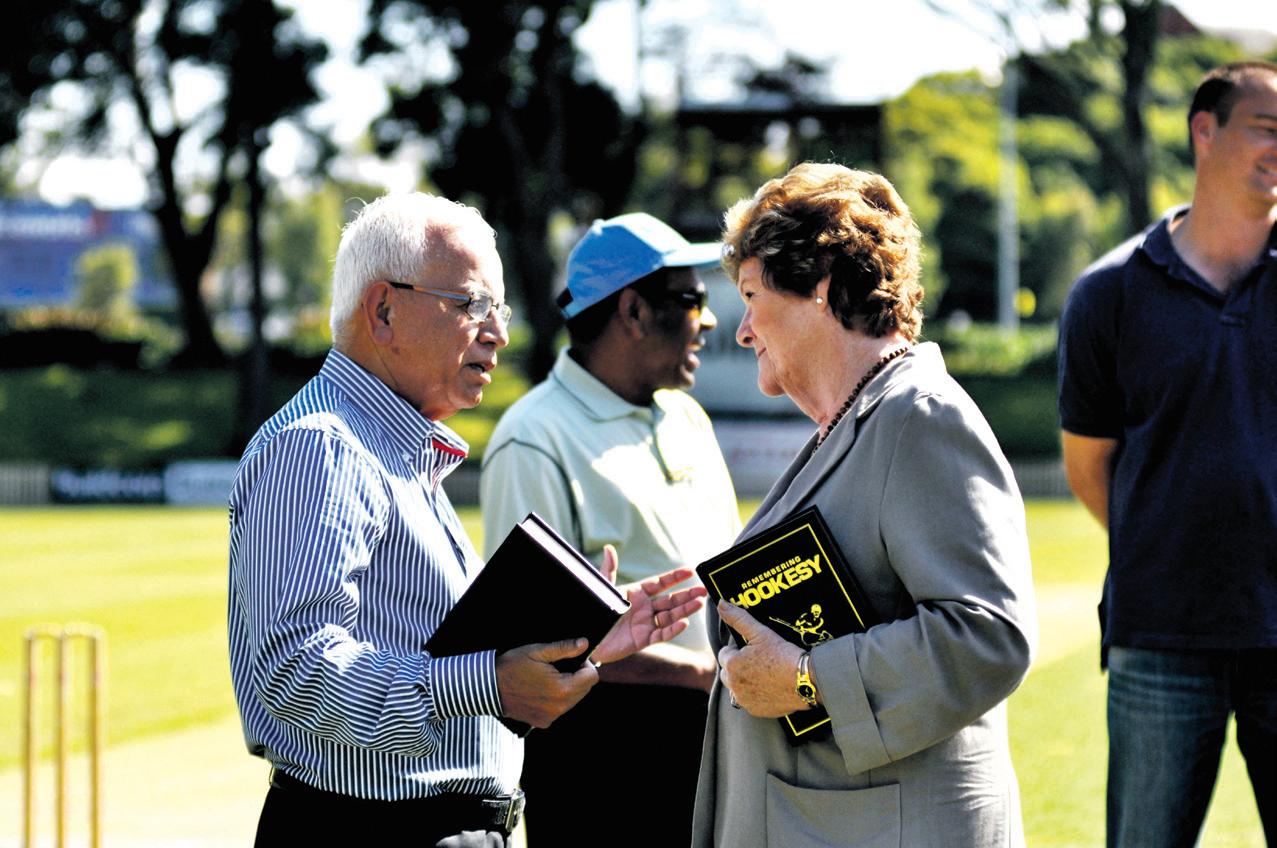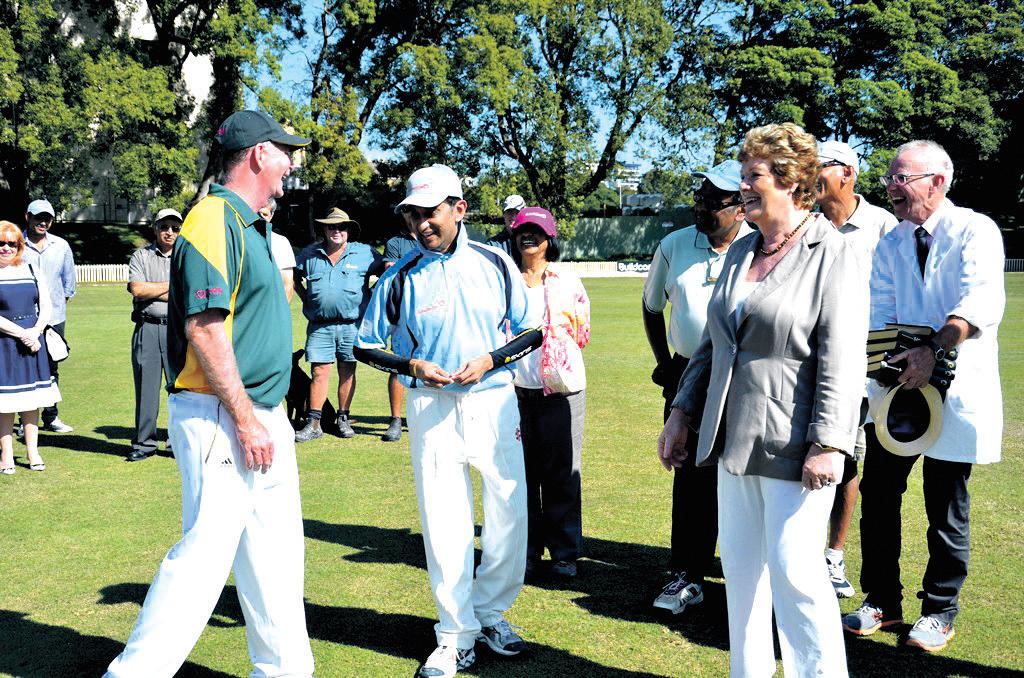
2 minute read
Cricket promotes organ donation
from 2012-03 Sydney (2)
by Indian Link
Arather unique cricket game was organised recently. The two teams that played were an Indian community team sponsored by the Indian Welfare Association (IWA), and the Australian Transplant Cricket Club (ATCC), comprising of players who have received a transplant or a donated organ, which has enabled them to live their lives like normal people.
It was organised by a group headed by Prof. Richard Allen, Director of Transplantation Services at Royal Prince Alfred Hospital, and Head of Transplant Surgery at Sydney University.
The event was aimed at creating awareness about organ donation within the Indian community.
Since Indians everywhere love cricket, it was natural that a cricket match was the chosen vehicle to do this.
Funded by the Organ and Tissue Authority (OTA), this free event was held on March 11 at the Sydney University Oval No. 1, and attended by about a hundred people.


It is a credit to the organisers from both sides that the match was a resounding success, which will be avidly discussed in the social circuit and local media, and will be the precursor to becoming an annual event in years to come.
The match was played in 2 innings of 15 overs each, a total of 30 overs. The Indian community team scored 194 for 6 wickets while the Australian Transplant CC scored 175, with the Indian team carrying off the ‘Jeevan Dhan’ trophy.

In fact, the event turned out to be much more than a mere game of cricket. Ms Jillian Skinner (NSW Minister for Health), Mr. Harry Harinath (Chairman, Cricket NSW) and Michael Bevan and Stuart Clark, former Test cricketers of Australia, all attended the event. University of Sydney permitted the use of a helicopter to hover over and dry Oval No. 1 which was flooded knee-deep only a couple of days before the game. The chief curator Ray Hunt mobilised all his resources to ready the pitch for the game. David Sygall, sports correspondent of The Sun Herald wrote glowingly about the sterling efforts of all concerned to get the game underway, with pictures of Sydney University Oval No. 1 before and after the flooding. The ethnic television channel TVS provided coverage (courtesy Mr. Raj Natarajan) and will create a feature that will help gain wider access to the community. A mouth- watering Indian lunch menu was on offer to the audience. The audience was encouraged to participate in a catching competition during the lunch break, and Michael Bevan offered his services to hit balls to test the skills of the participants.

The Indian cricket team donated a bat signed by the entire team and the Indian cricket legend, Rahul Dravid donated a bat signed by him on the eve of his retirement.
To commemorate Australian cricket legend David Hookes who donated his organs following his premature demise, Mrs. Robyn Hookes sponsored a rolling trophy which is to become a regular annual feature. The glittering trophy was donated by Mr. Deepak Bhownagari of Liverpool to the winners of the match, which happily turned out to be the Indian community team, captained by Prem Krithivasan.
The ATCC team was led by Pat Nolan, with Murray Rose as Vice Captain. Players proudly wore specially created caps and cricket shirts for this event, with the logos of the IWA and OTA. Every participant was presented a copy of the book Remembering Hookesy, a publication by the David Hookes Foundation, about his life in cricket.
It may not be common knowledge that over 60 % of patients queuing up for kidney, lung, liver and other organ donors in Australia comprise of people of South Asian origin. The Organ and Tissue Authority (OTA), which is a federal government initiative to encourage donations, is at pains to expedite organ donations from volunteers. Unless the demand is matched by supply, the queues will continue to lengthen and more lives will be lost for want of voluntary donations.
South Asian and Indian community organisations are being targetted to ensure that the families of the deceased do not stand in the way of organ donations which must be removed within a couple of hours of the death, which amounts to a “gift of life” for the recipients.









